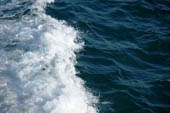
Purpose
To determine whether the temperature of the water in the ocean changes with its depth.
Additional information
There are many professions that require divers to enter the depths of the ocean. It is important for them to consider temperature when getting ready for their excursions – if the temperatures in the ocean differ from shallow to deeper areas, what do divers need to do to prepare themselves for the depth of their excursion?
Sponsored Links
Required materials
- Computer with internet connection
- Ability to use Google or comparable search engine
- Journal or logbook
Estimated Experiment Time
Several hours.
Step-By-Step Procedure
- 1. Search the internet using a search engine (such as Google) to find a website that will show you the various temperatures of the ocean compared to the depths.
- 2. Record all information in your logbook. Look at the depths of the ocean in different parts of the world (such as on the East and West coasts of North America as well as the coasts of the oceans near Asia and other countries) and their corresponding temperatures.
- 3. Graph your results in a detailed manner.
Note
This is a research based experiment and does not require use of the Scientific Method.
Observation
Overall, is the temperature of the ocean affected by the depth of the water? If so, why do you think that is? Take a closer look. Do the temperatures vs. the depths vary in different parts of the world? For example, how does the temperature of the ocean 100 feet into the water in one are of the world compare to the temperature of the ocean 100 feet into the water in another area of the world? Are the numbers the same? If they’re different, what do you think is responsible? Does the amount of light in available at a certain depth or other factors such as sea kelp play a part in what the temperature is?
Result
Generally, the deeper the ocean water, the colder the temperature is. There are many parts of the ocean that are so deep and dark that the temperatures are below freezing. If someone plans to dive to certain areas of the ocean, how can he or she prepare themselves for the depth that they are planning to reach? How do you think that diving equipment or submarines help divers to reach deeper parts of the ocean? What would happen if a diver did not take the proper precautions before diving to a certain depth that was a colder temperature?
Sponsored Links
Take a moment to visit our table of Periodic Elements page where you can get an in-depth view of all the elements,
complete with the industry first side-by-side element comparisons!